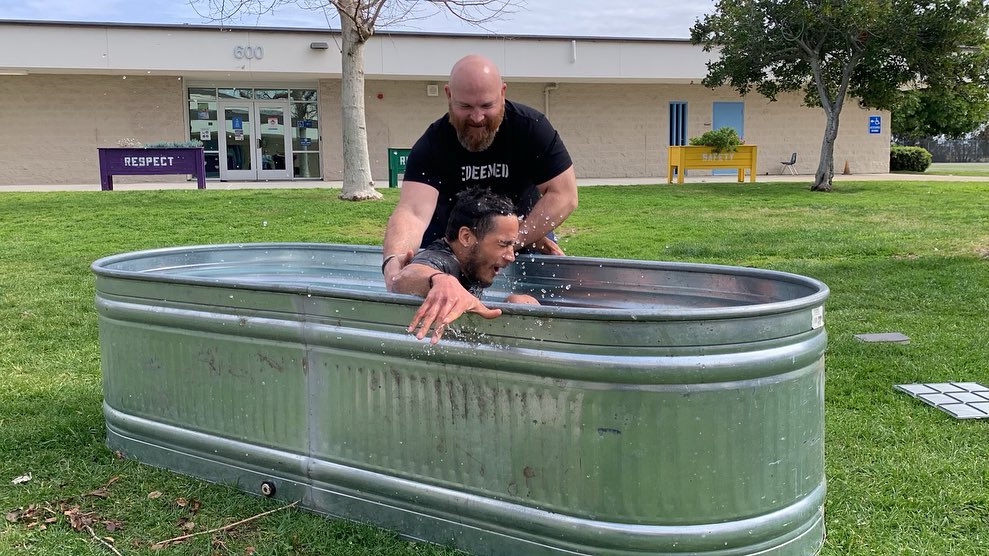“If we can win the university today, we will win the world tomorrow.” Bill Bright, founder of Campus Crusade Are we overlooking the most fertile soil for starting and multiplying new churches? Over the last five years I’ve been on a trek to learn everything possible about collegiate church planting: the idea of starting churches (comprised of between 50-95% college students) within college/university communities. Some dismissed the idea as a waste of time and money. Others decried collegiate churches as an attack on traditional Baptist Collegiate Ministry (BCM) structures. Plenty of folks focused on possible shortcomings like funding, sustainability, lack of student maturity and ecclesiological hurdles like the “mono-generational” nature of college student churches. A growing number of leaders, however, see huge potential in collegiate church planting. While they understand the challenges of planting within university worlds, those concerns are eclipsed by the opportunity to see college students 1) gripped by the gospel and then 2) engaged in church planting as a lifestyle. As a result, collegiate church planting is gaining momentum. Within collegiate churches, students are coming to know Christ at increasing rates. New believers are being effectively discipled. Then they are immediately challenged to leverage their lives by taking part in new plantsin/around college towns. So why does collegiate church planting matter?
Influence
In his book, Collegiate Ministry in A Post Christian Culture, Steve Lutz argues that the college campus is the most strategic mission field on planet earth. Why? Because of the site and situation of the students living within it. Consider “who [college students] are”—academically they are “the top 1 percent of the world’s population.” Consider “when they are”—at the last stop of formal education before settling into the rigors and limits of adult life. Consider “where they are”—living and learning at the crossroad of ideas that ultimately shape the direction of the world. These “who, when, where” factors make today’s collegiate students the most influential and powerful shapers of tomorrow. What they believe, value, and esteem as they leave college shapes organizations, institutions, cultures and societies in the world for generations to come.
Inception
The two most important developmental windows in a person’s life come between ages 0-5 and 18-25. That means the scripts parents set for a child stick lifelong. Just as importantly, the patterns set and decisions made during the college years impact a student’s trajectory for life (See Meg Jay’s must read book, The Defining Decade or her Why 30 is Not the New 20TED talk). For ministry leaders, that means the college years are the most vital window for incepting church planting into the lives of individuals. If engaged in a church plant during college, students see church planting and the church planting mindset/skillset as normative for Christians. What if every college student took part in a church plant by graduation? How would that change North America? By cultivating church planting on or near college campuses, we are guaranteed a more thriving and robust church of the future.
Investment
The most profitable ministry investment for the future is college students. Churches may balk at spending time on collegians because of their transient nature. Pastors may cringe at pouring dollars into students who may not stay to tithe down the road. But what happens when just a few college students are reached, discipled, and trained to become reproducing disciple makers? What happens when students gain a vision for church planting? Answer: They can become a highly-mobile, highly-focused, highly-valuable church planting team. Connected with a strong church planter, a team of recent graduates can move into a city, get jobs, initiate relationships, and build church community with incredible speed. How much time and energy would it take to create this kind of team with any other group later in life? At the end of the day, investing in college students who are invested in church planting is like putting cash in retirement, it can be tough at moments but it benefits you and your family for life. Dollar for dollar there is no better return on investment than producing collegiate disciples who have a passion for church planting.
Innovation
Planting churches within the collegiate environment is the best church planting laboratory…ever. By nature, successful collegiate churches are evangelizing, discipling, sending, and planting churches. Just to survive, they must be focused, nimble, adaptable and gospel-centered. Collegiate churches are forced to engage a new crop of freshmen and launch their senior class annually. And they must constantly innovate their systems to handle the challenges of moving non-believers to disciples to missionaries within four years. It’s for these reasons that collegiate churches are inherently learning churches. This learning doesn’t stay locked up in collegiate churches. Instead, with each graduating class, students launch out into new church plants or existing churches. When those graduates land, they are carrying a missional DNA that sees church planting (and all that it requires) as normal for every church. In this way, collegiate church planting benefits other churches on a variety of levels. Over the next 10 years, you can make thousands of decisions to benefit your church, but with one decision—deciding to invest in college students—you will benefit thousands of churches for generations to come. For more collegiate church planting resources, click here > >.
Published March 16, 2015




